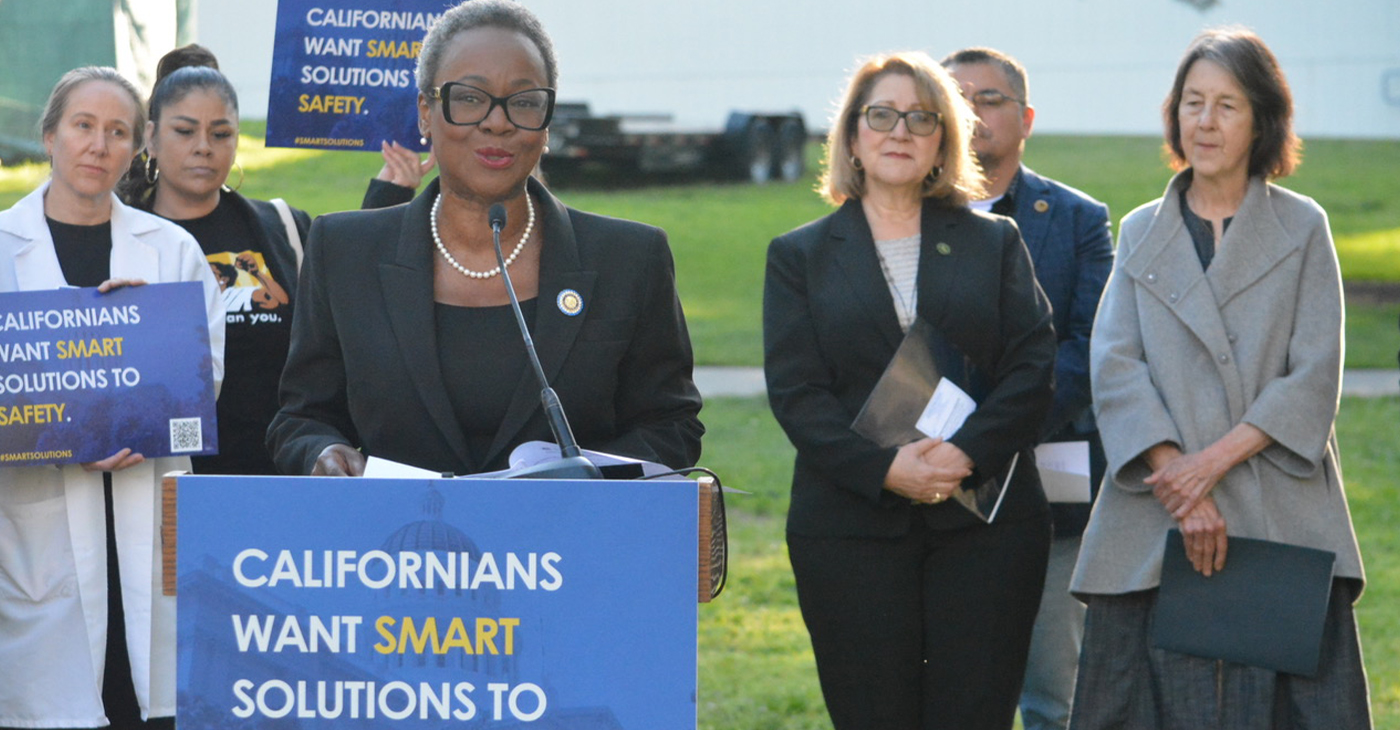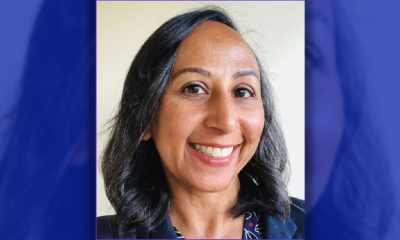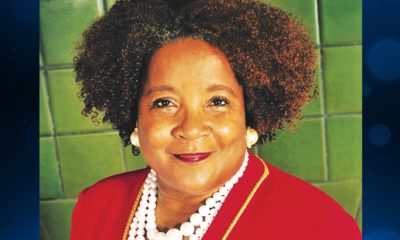Health
Community Seeks Emotional and Physical Wellness
by Sandra Jordan
Special to the NNPA from the St. Louis American
“It’s the stress of what we are going through as a community that is making us unhealthy,” said St. Louis Regional Health Commission CEO Robert Freund.
Through the Gateway to Better Health Program, RHC has connected about half of the St. Louis area’s uninsured population to primary care doctors at Federally Qualified Health Centers.
RHC data indicates about 60 percent of those persons have chronic illnesses. They have diabetes, they have hypertension or both.
“We’re doing a great job of trying to get them into medical care and managing those diseases so they don’t spin out of control and turn into strokes, turn into amputations – diabetes turn into blindness,” Freund said. “The question we started asking was: is there a way we can get the numbers down from 60 percent of those folks having a chronic disease before we get to them – before they hit our health centers?”
And they started thinking about what was really driving the development of those chronic conditions, as well as ways to strengthen community engagement.
Freund said community was telling the RHC that it needed to get back to stressing the importance of mental health. People are stressed-out. And resources to help are scarce.
“A lot of what is driving the poor health …, it’s not necessarily lack of access or not necessarily lack of medicine, it’s stuff that’s going on in our everyday lives,” he said.
And there is scientific data to support it. The Adverse Childhood Experiences Study, conducted by Centers for Disease Control and Prevention in Atlanta and Kaiser Permanente in San Diego, found a direct link between childhood trauma and adult onset of chronic diseases, such as diabetes, heart disease and some types of cancer.
“Your body just gets so worked up until ‘fight or flight response,’ which releases chemicals in your body. And if it’s always in a fight or flight response, it’s going to jack up your blood pressure; it’s going to jack up your blood sugar levels,” Freund said. “And you know what that gives you? Diabetes and hypertension.”
The RHC started a collective conversation about what it takes to become a healthier community through its effort, Alive and Well St. Louis. The first conversations were heard on local radio through a series of health messages based on the commission’s 10-year review health status report and hosted by Integrated Health Network CEO Bethany Johnson Javois (who is currently on hiatus from IHN while she serves as the managing director of the Ferguson Commission).
Conversations expanded from the airwaves to back to grassroots level, where behavioral health professionals are training community members to become ambassadors – who will help others learn how to fight toxic stress in their lives to create a community that is not merely existing – it’s Alive and Well.
There are tools and techniques that individuals can use for personal stress reduction, including talking about it.
“People who are in community with each other and are connected with one another are much more likely to deal with stress better,” Freund said. “If you are isolated or are alone, if you don’t have a natural support group … you won’t get through the stresses as well as others.”
Something as simple as exercising or taking walks help deal with stress levels; making a decision to have a positive attitude; taking a few minutes to reflect; taking a deep breath and meditating are useful tools, Freund said.
“When you really find yourself being anxious and worked up, step back, take deep breaths,” he said. “Sounds easy, but people don’t do it.”
Persons who are profoundly depressed or anxious should seek professional help.
“What we are finding is, it doesn’t take an acute crisis for people to make themselves sick over stress, and that’s where counseling agencies come in handy,” Freund reminded.
Provident Counseling, Hopewell Center and Lutheran Family Services are some of the agencies in the St. Louis area, as well as community health centers.
“Talk to your doctor and say, ‘I need some help.’”
Freund admits there are not enough mental health professionals for the amount of people who are stressed.
“If it reaches a tipping point, we need to get people help,” he said. “Before that, work with each other. Just talking about it with a friend can a lot of times be the thing that is the difference between getting people through it or not.”
The next Alive and Well training is scheduled for March 24. RHC said it will be conducted by the Department of Mental Health.
If you are interested in joining the conversation, download the Bonfyre app and search for Alive and Well, or find out more at http://www.aliveandwellstl.com.
Community
For Cervical Cancer Month, Medical Community Focused on Education
January was Cervical Cancer Awareness Month. Physicians, advocates and others in the medical community commemorated the month by raising awareness about a form of cancer they say is highly preventable and treatable. Cervical cancer is caused by a virus called the human papillomavirus (HPV) and it develops slowly over time but can be prevented with proper care in girls as young as 13 years old.

By Magaly Muñoz
January was Cervical Cancer Awareness Month.
Physicians, advocates and others in the medical community commemorated the month by raising awareness about a form of cancer they say is highly preventable and treatable.
Cervical cancer is caused by a virus called the human papillomavirus (HPV) and it develops slowly over time but can be prevented with proper care in girls as young as 13 years old.
Sonia Ordonez, an OBGYN and gynecology surgeon at Kaiser Permanente, stated that as soon as people with cervixes reach the maturity reproductive age, they should start taking preventative measures like getting the HPV vaccine. The vaccine involves a series of two-doses for people aged 9 through 14 or three-doses for people 15 through 45 years old.
“I see a lot of young women who can’t remember or may not have gotten [the vaccine] when they were younger, or maybe got one, but we can give them the series of vaccines and restart at any point in time,” Ordonez said.
She said that cervical cancer is not the only cancer caused by HPV. Strains of the virus can also lead to throat, anal and penile cancers.
Screening is also an effective way to check for cervical cancer and should be done every three years after someone turns 21, doctors recommend. It is best to start as early as possible to catch occurrences early.
Ordonez said that this cancer is also more likely found in people of color and has led to more deaths overall.
A Mayo Clinic article published last month stated that Black women are more likely to be diagnosed and die of cervical cancer, compared to White women in the U.S.
2,000 Black women are diagnosed every year with cervical cancer and 40% die as a result.
“This disparity is not due to genetic differences among White, Black or Hispanic women, but rather related to systemic racism, access to healthcare and socioeconomic factors,” Dr. Olivia Cardenas-Trowers, a Mayo Clinic urogynecologist, said in the article.
Ordonez stated that immigrant women are also highly susceptible to the cancer, as many Latin American countries may not have accessibility to screenings or lack of insurance makes it harder for them to get tested.
Hispanic women are 40% more likely to be diagnosed with cervical cancer, and 30% more likely to die from it, as compared to non-Hispanic White women, according to the Office of Minority Health.
Family medicine physician, Joy Anyanwu, stated that the pandemic contributed to hesitancy about getting cervical cancer screenings among some women. Other factors are people’s aversion to vaccines, parents not wanting to believe that their children are or will become sexually active, and doubt about the overall effectiveness of the vaccine.
“The vaccine is very safe — over 97% effective in preventing cervical cancer,” Anyanwu said. “Even if you aren’t having sex, the earlier you start would actually help.”
Anyanwu said she understands that parents might not want to ask questions about their children’s reproductive health, but it’s a mindset that can be a barrier to having important conversation about prevention or care.
To keep families their families and communties healthy, the doctor emphasized that people should prioritize keeping up with their vaccine series and going to screenings every year.
Antonio Ray Harvey
Sacramento Lawmakers Step Up Push for “Smart Solutions” on Crime, Public Safety
Assemblymember Tina McKinnor (D-Inglewood) and Sen. Lola Smallwood-Cuevas (D-Ladera Heights), both members of the California Legislative Black Caucus (CLBC), have joined other lawmakers and criminal justice reform advocates to address public safety in the state. On April 2, CLBC members gathered outside the State Capitol for the unveiling of the #SmartSolutions Public Safety Policy Platform, a package of 30 bills that addresses the top concerns of retailers, retail workers, the fentanyl crisis, and support for victims and survivors of crime.

By Antonio Ray Harvey, California Black Media
Assemblymember Tina McKinnor (D-Inglewood) and Sen. Lola Smallwood-Cuevas (D-Ladera Heights), both members of the California Legislative Black Caucus (CLBC), have joined other lawmakers and criminal justice reform advocates to address public safety in the state.
On April 2, CLBC members gathered outside the State Capitol for the unveiling of the #SmartSolutions Public Safety Policy Platform, a package of 30 bills that addresses the top concerns of retailers, retail workers, the fentanyl crisis, and support for victims and survivors of crime.
“Instead of being tough on crime, we need to be smart on crime,” Smallwood said at the press briefing. “I am not saying that we’re not going to be holding folks accountable for the actions that they take. But we will not rely on incarceration as a solution.”
McKinnor, Smallwood-Cuevas, a coalition of advocates, addiction treatment experts, and Yurok Tribal leaders joined Sen. Nancy Skinner (D-Berkeley), and Assemblymember Eloise Gómez Reyes (D-Colton) at the press conference organized to promote legislative solutions that ensure safety and justice.
Organizers say #SmartSolutions is an intersectional campaign that combats criminalization and mass incarceration by pushing for the redirection of state resources to fund housing, health care, schools, services for victims, and programs that reduce recidivism and promote accountability, beyond incarceration.
Opponents of the bills proposed in the #SmartSolutions campaign say their colleagues who support reform-focused strategies are looking the other way on crime and encouraging lawlessness.
For example, Assemblymembers Wendy Carillo (D-Boyle Heights), Carlos Villapudua (D-Stockton) and Mike Gipson (D-Carson) are supporting Assembly Bill (AB) 1990, legislation that would allow a peace officer to arrest shoplifters without a warrant or without witnessing the theft.
Assemblymember James Ramos (D-Highland) authored AB 1772 and introduced it in January. The legislation proposes sterner penalties for retail theft, particularly for repeat offenders.
The #SmartSolutions campaign is co-sponsored by Ella Baker Center for Human Rights, Smart Justice California, American Civil Liberties Union (ACLU) California Action, Californians for Safety and Justice, and Californians United for a Responsible Budget (CURB).
Smallwood recently introduced two bills she hopes will provide solutions to the escalating retail theft problem in the state. Senate Bill (SB) 1446 addresses theft, technology and job security in retail establishments and aims to minimize workplace violence, according to supporters. SB 1282 requires counties to expand the use of a diversion program for theft cases.
“Restorative Justice is the essential pillar of making our criminal justice system more fair, just, and equitable,” McKinnor said. “Restorative justice recognizes the trauma of victims and preparatory of crimes and provides a constructive space for victims to find healing.”
Dr. Amiee Moulin, founder of the California Bridge program and chief of the Division of Addiction Medicine at the University of California (UC) Medical Center, said drug “addiction and overdose” are taking a toll on patients, families and the community.
“I believe that California’s proposed legislation focused on expanding access to treatment is a crucial step towards saving lives,” Moulin said. “By removing barriers to care and embracing evidenced-based strategies we can provide patients the support they need to heal and recover.”
California Black Media
Stakeholders Warn Lawmakers of Expanding Aging Population; Older Black Californians Included
The California Commission on Aging (CCoA) hosted its second annual forum focused on challenges facing Californians over 65 years old. Titled “Aging and Disability Issues: What Legislative Staff Need to Know for 2024,” the virtual event was organized to bring awareness to lawmakers that California’s aging adults are living longer and to emphasize the importance of developing policy to support this growing population, according to organizers.

By Antonio Ray Harvey, California Black Media
The California Commission on Aging (CCoA) hosted its second annual forum focused on challenges facing Californians over 65 years old.
Titled “Aging and Disability Issues: What Legislative Staff Need to Know for 2024,” the virtual event was organized to bring awareness to lawmakers that California’s aging adults are living longer and to emphasize the importance of developing policy to support this growing population, according to organizers.
This year’s meeting included the perspectives of gerontologists and other subject-matter experts who provided data and insights critical to informing policy.
Former Assemblymember Cheryl Brown (D-San Bernardino), who chairs the CCoA’s Executive Committee, began the discussion.
“The landscape of California is changing. Aging is changing and it’s changing California,” Brown said. “Older adults are living longer, and the cohort is becoming more ethnically diverse, underscoring the need to develop culturally, appropriate services.”
The discussion encompassed a range of topics including planning for long-term care, assisted living, enhancing healthcare quality, technology use, services for senior adults with disabilities, state budget considerations, and the best policies and practices to help aging adults stay healthy, active, independent, and confident.
The CCoA acts as the principal advocate for older Californians and as a catalyst for change that supports and celebrates Californians as they advance in age. The CCoA advises the Governor and Legislature, along with state, federal, and local agencies on programs and services that affect senior adults.
Statewide organizations that participated in the event included LeadingAge California, Disability Rights California, California Foundation for Independent Living Centers, and California Collaborative for Long-Term Services and Supports.
In addition, representatives and staff members of Choice In Aging, Age Watch Newsletter, California Elder Justice Coalition, California Association of Area Agencies on Aging, and the California Long-Term Care Ombudsman Association were presenters during the 90-minute discussion.
“In California, we know that older adults are underserved and unserved relative to their needs,” CCoA Executive Director Karol Swartzlander said. “In stark terms, we know that 4% of older adults who need service actually receive services.”
According to the California Department of Aging (CDA), California’s aging population is expected to reach an estimated 4.5 million individuals ages 60 to 69 and 4.2 million senior adults ages 70- to 79 by the year 2040, based on information from CDA’s Master Plan for Aging.
Recognizing that the state’s 65-plus population is projected to grow to 8.6 million by 2030, Gov. Gavin Newsom issued an executive order calling for the development of the MPA.
Debbie Toth, from ChoiceInAging, said the MPA is a model of “how we can do better” to service the needs of older adults. ChoiceInAging, Toth said, “is going to be shopping accessible transportation and rate increases for adult day healthcare.
“But we need to have legislation to do it,” Toth told legislative staff members.
A 2016 California Health Report (CHR) revealed that by 2030, 18% of the state will be 65 or older. Projections in that study also indicated that 52% of these older adults would be from diverse minority groups but “no population is expected to be harder hit than African Americans,” the report stated.
-

 Activism4 weeks ago
Activism4 weeks agoOakland Post: Week of March 20 – 26, 2024
-

 #NNPA BlackPress3 weeks ago
#NNPA BlackPress3 weeks agoCOMMENTARY: D.C. Crime Bill Fails to Address Root Causes of Violence and Incarceration
-

 #NNPA BlackPress3 weeks ago
#NNPA BlackPress3 weeks agoMayor, City Council President React to May 31 Closing of Birmingham-Southern College
-

 #NNPA BlackPress3 weeks ago
#NNPA BlackPress3 weeks agoCOMMENTARY: Lady Day and The Lights!
-

 #NNPA BlackPress3 weeks ago
#NNPA BlackPress3 weeks agoFrom Raids to Revelations: The Dark Turn in Sean ‘Diddy’ Combs’ Saga
-

 #NNPA BlackPress3 weeks ago
#NNPA BlackPress3 weeks agoBaltimore Key Bridge Catastrophe: A City’s Heartbreak and a Nation’s Alarm
-

 #NNPA BlackPress3 weeks ago
#NNPA BlackPress3 weeks agoBaltimore’s Key Bridge Struck by Ship, Collapses into Water
-

 Activism3 weeks ago
Activism3 weeks agoOakland Post: Week of March 27 – April 2, 2024





















































